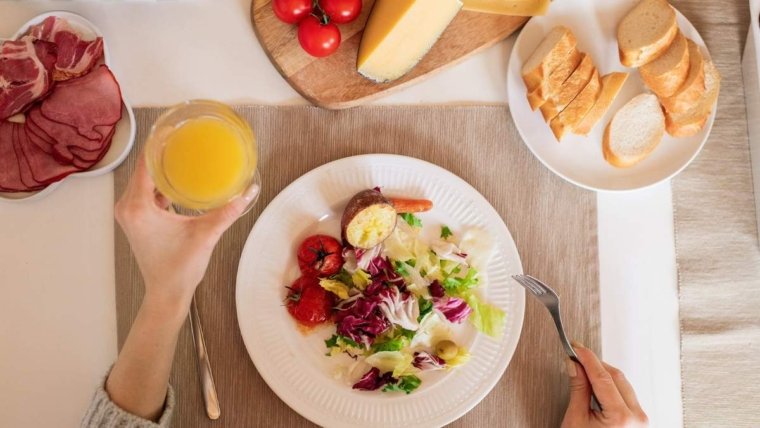In an age characterized by abundance and excess, many individuals are turning to minimalist living as a way to reclaim their time, space, and mental clarity. Minimalism is not just about reducing possessions; it’s a philosophy that emphasizes intentionality, simplicity, and focusing on what truly matters. This lifestyle encourages people to evaluate their priorities, eliminate distractions, and create a life that is rich in experiences rather than material goods. In this article, we will explore the principles of minimalist living, the benefits it offers, and practical steps you can take to simplify your life.
What is Minimalist Living?
Minimalist living is a lifestyle that promotes the reduction of unnecessary possessions and the simplification of one’s environment. It is about making conscious choices to focus on the essentials, thereby creating more space for what truly brings joy and fulfillment. Minimalism is not about deprivation; it’s about abundance in the things that matter most.
The Core Principles of Minimalism
Minimalism is guided by several core principles:
- Intentionality: Making deliberate choices about what you own and how you spend your time.
- Simplicity: Reducing complexity in your life to create more mental and physical space.
- Quality Over Quantity: Prioritizing well-made, durable items over cheap, disposable goods.
- Mindfulness: Being present and fully engaged with your surroundings and activities.
The Benefits of Minimalist Living
Adopting a minimalist lifestyle can lead to numerous benefits that extend beyond just having a tidy home. These benefits can significantly improve your overall quality of life.
Reduced Stress and Anxiety
Clutter has been shown to increase stress and anxiety levels. A cluttered environment can overwhelm your senses, making it difficult to relax and focus. By simplifying your surroundings, you create a peaceful space that promotes calmness and mental clarity.
Financial Freedom
Minimalism encourages mindful spending and helps you break free from the cycle of consumerism. By buying only what you truly need, you can save money, reduce debt, and achieve financial independence. This financial freedom allows you to invest in experiences and relationships rather than material possessions.
Improved Focus and Productivity
A minimalist environment reduces distractions, allowing you to concentrate better and be more productive. When your physical space is clear, your mind can also operate more efficiently, helping you focus on your goals and priorities.
How to Start Living a Minimalist Lifestyle
Embarking on a minimalist lifestyle doesn’t happen overnight. It requires a thoughtful and gradual approach to decluttering and simplifying various aspects of your life.
Decluttering Your Home
The first step towards minimalism is decluttering your living space. This process involves getting rid of items that no longer serve a purpose or bring you joy.
- Start Small: Begin with a single room or area, such as a closet or a drawer. Tackling a smaller space first can help build momentum and make the task less overwhelming.
- Evaluate Each Item: As you go through your belongings, ask yourself if each item is truly necessary or if it brings you happiness. If the answer is no, it’s time to let it go.
- Donate or Sell: Items that are still in good condition can be donated to charity or sold. This not only reduces waste but also benefits others.
Simplifying Your Schedule
Minimalism extends beyond physical possessions to include how you manage your time. A cluttered schedule can be just as overwhelming as a cluttered home.
- Prioritize Your Commitments: Review your calendar and identify activities or obligations that don’t align with your goals or values. Consider cutting back on unnecessary commitments to create more time for what matters most.
- Practice Saying No: It’s okay to decline invitations or requests that don’t fit into your priorities. Saying no can free up time and energy for the things that truly enrich your life.
- Mindful Time Management: Allocate your time wisely by focusing on activities that contribute to your well-being and personal growth. This might include hobbies, exercise, or spending quality time with loved ones.
Adopting a Minimalist Mindset
A minimalist mindset is crucial for sustaining the lifestyle. It involves changing the way you think about consumption, happiness, and success.
- Shift Your Perspective: Recognize that happiness and fulfillment don’t come from material possessions. Focus on experiences, relationships, and personal growth.
- Practice Gratitude: Regularly reflect on the things you are grateful for. This practice helps you appreciate what you have and reduces the desire for more.
- Embrace Contentment: Learn to be content with less. Instead of constantly seeking the next best thing, find joy in what you already have.
Minimalism in Everyday Life
Minimalism can be applied to various aspects of daily life, from how you approach technology to how you manage your relationships.
Digital Minimalism
In today’s digital age, information overload can be just as overwhelming as physical clutter. Digital minimalism involves decluttering your digital space to create a more focused and intentional online experience.
- Organize Your Devices: Clean up your desktop, smartphone, and other devices by deleting unnecessary files, apps, and notifications.
- Limit Screen Time: Set boundaries for how much time you spend on screens, especially social media. Use technology intentionally rather than mindlessly scrolling.
- Unsubscribe and Unfollow: Reduce digital noise by unsubscribing from unnecessary emails and unfollowing accounts that don’t add value to your life.
Minimalism in Relationships
Minimalism can also improve the quality of your relationships by encouraging you to focus on meaningful connections rather than quantity.
- Quality Over Quantity: Prioritize relationships that bring positivity and support into your life. It’s better to have a few close, meaningful connections than many superficial ones.
- Be Present: Practice being fully present in your interactions with others. Listen actively, engage in meaningful conversations, and spend quality time with loved ones.
- Simplify Social Commitments: Don’t feel obligated to maintain every social connection. It’s okay to step back from relationships that drain your energy or no longer align with your values.
Common Misconceptions About Minimalism
Despite its growing popularity, minimalism is often misunderstood. Some people believe it’s about living an austere life with few possessions, but that’s not the case.
Minimalism is Not About Deprivation
Minimalism is often wrongly associated with deprivation or extreme frugality. However, minimalism is not about living with as little as possible; it’s about living with what is necessary and meaningful. It’s about choosing quality over quantity and making space for what truly matters.
Minimalism is Not a One-Size-Fits-All Approach
There is no one right way to practice minimalism. It’s a flexible lifestyle that can be tailored to fit your individual needs and preferences. What works for one person may not work for another, and that’s okay. The key is to find a balance that enhances your life without adding unnecessary stress or pressure.
Minimalism as a Path to Personal Growth
Beyond the practical benefits, minimalism can be a powerful tool for personal growth and self-discovery. By stripping away the excess, you can focus on your inner self and what truly matters.
Discovering Your Values
Minimalism encourages you to reflect on your values and priorities. By letting go of what doesn’t serve you, you gain clarity on what’s truly important in your life. This self-awareness can lead to greater fulfillment and a deeper sense of purpose.
Cultivating Mindfulness
Living a minimalist lifestyle fosters mindfulness by encouraging you to be present and intentional in your daily life. When you’re not distracted by clutter or unnecessary commitments, you can fully engage with the present moment and enjoy life’s simple pleasures.
Building Resilience
Minimalism can also help build resilience by teaching you to find contentment and joy in simplicity. When you’re not dependent on external factors for happiness, you become more adaptable and better equipped to handle life’s challenges.
Conclusion: Embracing the Art of Simple Living
Minimalist living is more than just a trend; it’s a transformative lifestyle that offers numerous benefits. By simplifying your possessions, schedule, and mindset, you can create a life that is rich in meaning and free from unnecessary stress. Whether you’re just starting your minimalist journey or looking to deepen your practice, remember that minimalism is about intentionality and finding what works best for you. Embrace the art of simple living, and discover the freedom and fulfillment that comes with it.
FAQs
Q1. What is minimalist living?
A1. Minimalist living is a lifestyle that emphasizes simplicity, intentionality, and focusing on what truly matters by reducing unnecessary possessions and distractions.
Q2. How do I start living a minimalist lifestyle?
A2. Begin by decluttering your home, simplifying your schedule, and adopting a minimalist mindset. Start small and gradually make changes that align with your values and goals.
Q3. Can minimalism help reduce stress?
A3. Yes, minimalism can significantly reduce stress by eliminating clutter and distractions, allowing you to focus on what’s truly important in your life.
Q4. Is minimalism about owning as few things as possible?
A4. No, minimalism is not about deprivation. It’s about owning only what is necessary and meaningful, and letting go of excess that doesn’t add value to your life.
Q5. Can minimalism improve relationships?
A5. Yes, minimalism can enhance relationships by encouraging you to focus on meaningful connections and spend quality time with loved ones, rather than maintaining superficial ties.



